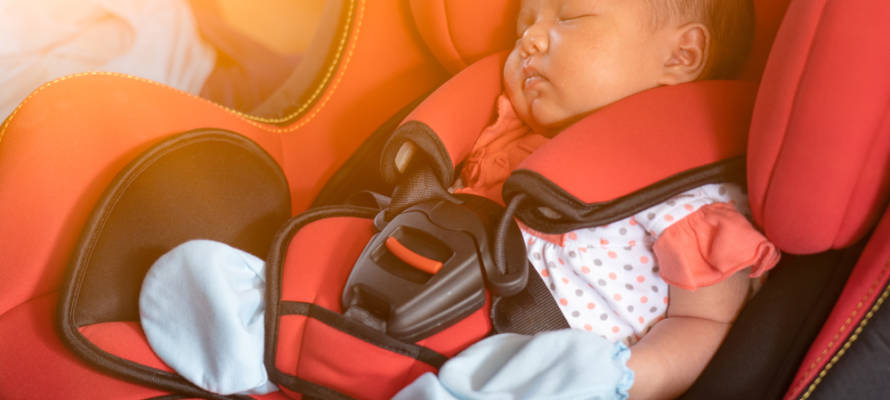A new Israeli technology detects children left in cars, a tragedy that has claimed the lives of hundreds of kids.
Israeli company Vayyar Imaging is using its intelligent 4D radar sensors to prevent children from being left in cars. On average, every nine days a child dies from being left in a hot car in the US alone, according to Quartz news.
The company’s Child Occupancy Presence Detection (COPD) detects an infant in a car even if the child is covered by a blanket or hidden in a car seat or footwell.
“Our low-cost, high-performance sensing with 4D Point Cloud technology can display the dimension, location and movement of people and objects, enabling complete real-time classification of the car’s environment without the use of a camera,” explains Vayyar on its website.
In hot weather, a car can heat up to a lethal 115°F (46°C) in under an hour, says David Diamond, a neuroscientist at the University of South Florida. When children are forgotten in hot cars, whether due to a parent’s sleep-deprivation, stress level, or simple distraction, death can occur.
For more than two decades, automakers promised to provide interior sensors to prevent infant car fatalities. In that time period, over 690 children died from being left behind, according to statistics gathered by KidsandCars.org.
Lasers, radar, cameras and ultrasonic sensors that map the exterior of cars are now planned for use inside to prevent these tragedies, with Vayyar’s innovation costing only $100 per car.
Both Europe and the US have worked on bills to make car systems that detect children mandatory. However, those laws have not yet passed.
Vayyar recently joined CLEPA, the European Association of Automotive Suppliers, a move it hopes will further its mission of protecting lives with its technology.
“Working in tandem with this industry-leading group is the right platform for driving the next decade’s mobility, increasing safety of individuals in and out vehicles in an affordable way and significantly reducing the number of car-related injuries in Europe and around the world,” Ian Podkamien, director of Automotive Business Development at Vayyar, said in a statement.
Vayyar was founded in 2011. It has since developed low-cost 4D imaging sensors, enabling applications in the fields of cancer detection, people-tracking, vehicle automation, security, radiation-level testing, construction, and much more.










